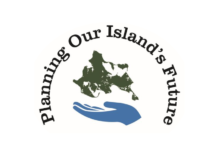Cornell Cooperative Extension (CCE) researchers have revealed new insights into the mass die-offs of adult bay scallops in Peconic Bay from 2019 to 2022. The findings underline the importance of continuing to seed the bay while investigating mitigation measures.
A Marine Ecology Progress Series article highlights a staggering 90-99 percent population decline from spring to fall during the period. Commercial landings also experienced similar declines, significantly impacting the livelihoods of those working in marine fisheries.
The CCE team says its findings suggest that changing environmental conditions may be influencing these recurring die-offs. And, they may be posing additional challenges to successful restoration efforts for the bay scallop population.
The shellfish are naturally short-lived, with few surviving beyond two years. So when CCE dives to gather data, it focuses on counting bay scallops that are over 12 months based on growth patterns visible on their shells, among other markers.
The recent study showed that adult population densities dramatically decline between spring and fall. Other investigators have focused on the marosporidian parasite as a possible primary cause for the die-offs, with elevated water temperatures and reduced oxygen as contributing factors.
“The die-offs described here likely appear to be due to a combination of environmental stressors that are compounding the physiological stress experienced by adult scallops around the time of the first seasonal spawn(s) in late June to late July. The primary driver is likely to be a marosporidian parasite, whose impacts on the health of scallops and contributions to high mortality levels appear to be exacerbated by elevated water temperatures and hypoxia that have become more commonplace in the last few years.”
But it also concludes that by pinpointing the timing of the die-off, the study shows that CCE’s restoration efforts have been crucial in jump-starting populations.
“The precarious state of Peconic bay scallops is exacerbated by their short lifespan and reinforces the vital importance of continuing restoration efforts.”
Despite continued die-offs, CCE will persist in growing and planting scallops while it continues to investigate causes and potential mitigation strategies for mortality events.
Read the CCE Marine Program MEPS report using this Open Access link*.
CCE efforts to restore adult bay scallops
In 2005, CCE Marine Program and Long Island University partnered with Suffolk County to restore the renowned Peconic Bay scallop.
Brown tide algal blooms from the mid-80s to mid-90s had nearly driven the bay scallop to local extinction. Despite the absence of brown tide blooms after 1995, scallop populations didn’t recover on their own.
Starting in 2006, the Restoration of Peconic Bay Scallop Populations and Fisheries program has used science-based techniques to jump-start populations. By planting large numbers of hatchery-reared scallops at high densities, CCE ensures a high probability of fertilization success upon spawning.
“In this way, we theorized that much higher numbers of scallop larvae would boost adult population sizes and help to rebuild the commercial fishery — historically one of the most important in Long Island waters,” CCE says.
“This is exactly what happened. Since 2006, we have planted more than 8 million scallops in lantern nets suspended in midwater and via free-planting to the bay bottom.”
Through 2018, the program’s estimated economic benefits were over $8 million to baymen and over $60 million to the regional economy, CCE says.
“In the midst of mass die-offs of adult scallops throughout the Peconic Bays in 2019 and 2020, we continue to grow and plant scallops as well as investigate causes and potential mitigation of these scallop mortality events.”
Support CCE’s scallop program
If you want to learn more about CCE’s scallop program or donate in support, please visit ccesuffolk.org/marine/aquaculture/scallop-program. Or, call the Marine Program office at (631) 727-7850, extension 326.
Cornell Cooperative Extension of Suffolk County is a 501 (c) 3 not-for-profit organization. All contributions are tax-deductible to the extent allowed by law.
* The study authors are: Stephen T. Tettelbach1, Raymond E. Czaja Jr.2 , Harrison Tobi1, Scott W. T. Hughes1, Bradley J. Peterson2, Stephen M. Heck2, Jessica MacGregor2, Flynn DeLany2, Brittney J. Scannell2, Emmanuelle Pales Espinosa2, and Bassem Allam2
1Marine Program, Cornell Cooperative Extension of Suffolk County, Southold
2School of Marine and Atmospheric Sciences, Stony Brook University, Stony Brook





